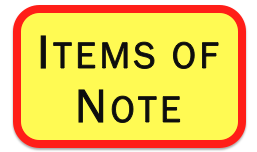The pool of persons eligible to serve on trade advisory committees has been expanded with a recent change in federal policy. Lobbyists may now serve on committees and boards provided that they serve in a representative capacity, and not in their individual capacity. The Office of the U.S. Trade Representative (USTR) and the Department of Commerce (Commerce) are applying the change in seeking nominations of individuals to service on their advisory committees.
Early in President Obama’s first term, the White House issued a ban on the participation of registered lobbyists on advisory committees, boards and commissions. In August 2014, that ban was eased when the Office of Management and Budget issued Revised Guidance on Appointment of Lobbyists to Federal Advisory Committees, Boards, and Commissions. The revised Guidance clarifies that the prohibition on participation by federally registered lobbyists does not apply to persons who serve in a representative capacity on advisory committee, boards and commissions. They may serve “if they are specifically appointed to represent the interests of a nongovernmental entity, a recognizable group of persons or nongovernmental entities (an industry sector, labor unions, environmental groups, etc.), or state or local governments.” The ban continues to apply to persons serving in their individual capacity.
Based on the revised Guidance, Commerce and USTR have revised their eligibility requirements for appointment to the 16 Industry Trade Advisory Committees (ITACs). They are now seeking nominations to the ITACs of individuals that meet the revised criteria. (USTR is making the same revisions to the requirements for appointment to other trade advisory committees.)
The ITACs are part of the advisory committee system that the U.S. Congress established 40 years ago to ensure that U.S. trade policy and trade negotiation objectives adequately reflect U.S. economic and commercial interests. The ITACs serve a particularly important role relating to negotiation of trade agreements such as the Trans-Pacific Partnership (TPP) and Transatlantic Trade and Investment Partnership (TTIP). They provide, for example, a means for USTR to obtain private sector input on proposed negotiating positions.
The ITACs are:
- ITAC 1 - Aerospace Equipment
- ITAC 2 - Automotive Equipment and Capital Goods
- ITAC 3 - Chemicals, Pharmaceuticals, Health/Science Products and Services
- ITAC 4 - Consumer Goods
- ITAC 5 - Distribution Services
- ITAC 6 - Energy and Energy Services
- ITAC 7 - Forest Products
- ITAC 8 - Information and Communications Technologies, Services, and Electronic Commerce
- ITAC 9 - Building Materials, Construction, and Nonferrous Metals
- ITAC 10 - Services and Finance Industries
- ITAC 11 - Small and Minority Business
- ITAC 12 - Steel
- ITAC 13 - Textiles and Clothing
- ITAC 14 - Customs Matters and Trade Facilitation
- ITAC 15 - Intellectual Property Rights
- ITAC 16 - Standards and Technical Trade Barriers
- Advisory Committee for Trade Policy and Negotiations (ACTPN)
- Agricultural Policy Advisory Committee (APAC)
- Agricultural Technical Advisory Committee for Trade (ATAC)
- Intergovernmental Policy Advisory Committee (IGPAC), which include state and local representatives from the three branches of government (executive, legislative and judicial) who provide advice on trade issues and their impact on state and local governments.
- Labor Advisory Committee (LAC)
- Trade Advisory Committee on Africa (TACA)
- Trade and Environment Policy Advisory Committee (TEPAC)
Post Permalink: https://trade.djaghe.com/837-2/


